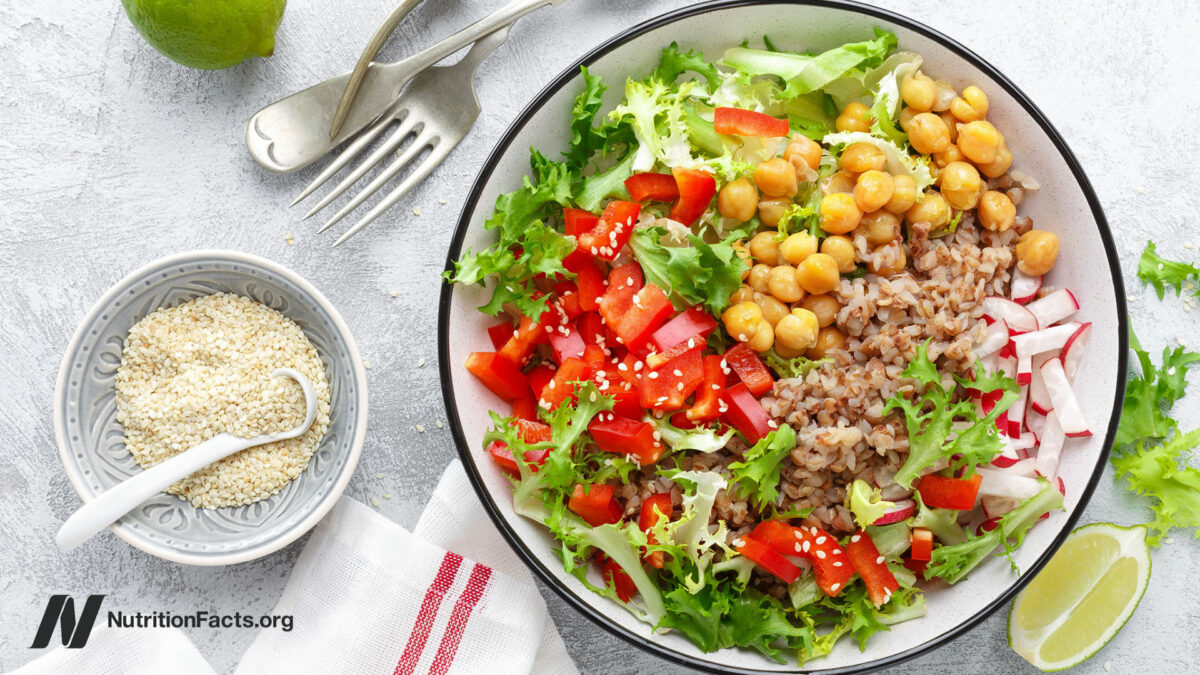
Breast Cancer
Besides skin cancer, breast cancer is the most common cancer among American women. To demonstrate how dramatically lifestyle choices can impact breast cancer risk, researchers followed for about seven years a group of about 30,000 postmenopausal women without history of breast cancer and found that simply limiting alcohol, eating mostly plant foods, and maintaining a normal body weight was associated with a 62 percent lower breast cancer risk.
Remarkably, eating a plant-based diet along with walking every day may improve our cancer defenses within just two weeks. Researchers attributed this effect to a decrease in levels of a cancer-promoting growth hormone called IGF-1, likely due to the reduced intake of animal protein.
It isn’t only animal protein that may be harmful, but the carcinogens in cooked meat. The Long Island Breast Cancer Study Project reported that women who eat more grilled, barbecued, or smoked meats over their lifetimes may have as much as 47 percent higher odds of breast cancer, and the Iowa Women’s Health Study found that women who ate their bacon, beefsteak, and burgers “very well done” had nearly five times the odds of getting breast cancer compared with women who preferred these meats rare or medium. Scientists were able to link the consumption of fried meat with the amount of DNA damage found within women’s breast tissue, the type of damage that can potentially cause a normal cell to mutate into a cancer cell.
Cholesterol may also play a role in the development and progression of breast cancer, as cancer appears to feed on it. The cancer is thought to be using the cholesterol to make estrogen or to shore up tumor membranes to help the cancer migrate and invade more tissue. In other words, breast tumors may take advantage of high circulating cholesterol levels to fuel and accelerate their own growth.
Consuming less meat and more fruits, vegetables, and fiber, as well as flaxseeds, soy foods, and cruciferous vegetables such as broccoli sprouts may reduce breast cancer risk and improve survival chances.
In 2018 I did a whole series on mammograms. Check it out here.
For substantiation of any statements of fact from the peer-reviewed medical literature, please see the associated videos below.
Image Credit: DragonImages / Thinkstock. This image has been modified.
Popular Videos for Breast Cancer

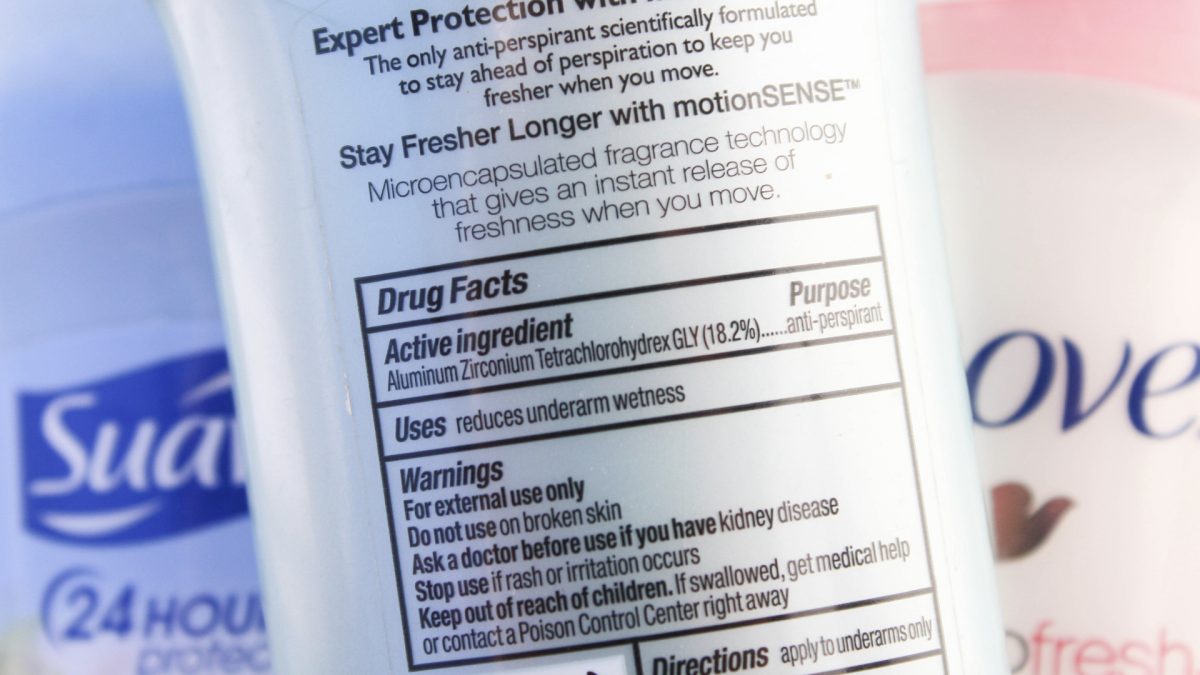
Antiperspirants and Breast Cancer
Shaving before applying underarm antiperspirants can increase aluminum absorption. Could this explain the greater number...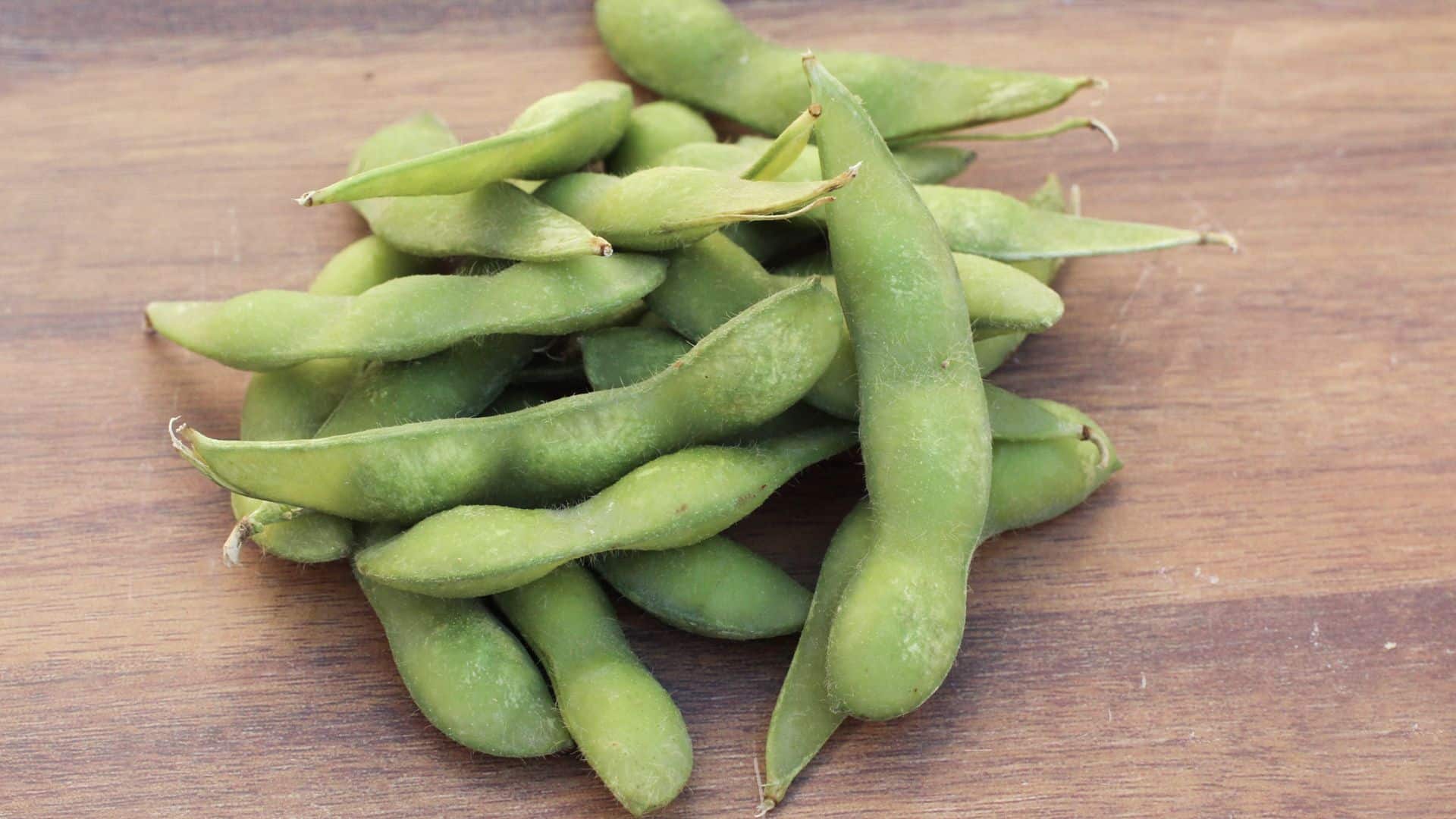
How to Block Breast Cancer’s Estrogen-Producing Enzymes
What happens to hormone levels in women and men randomized to drink soy milk?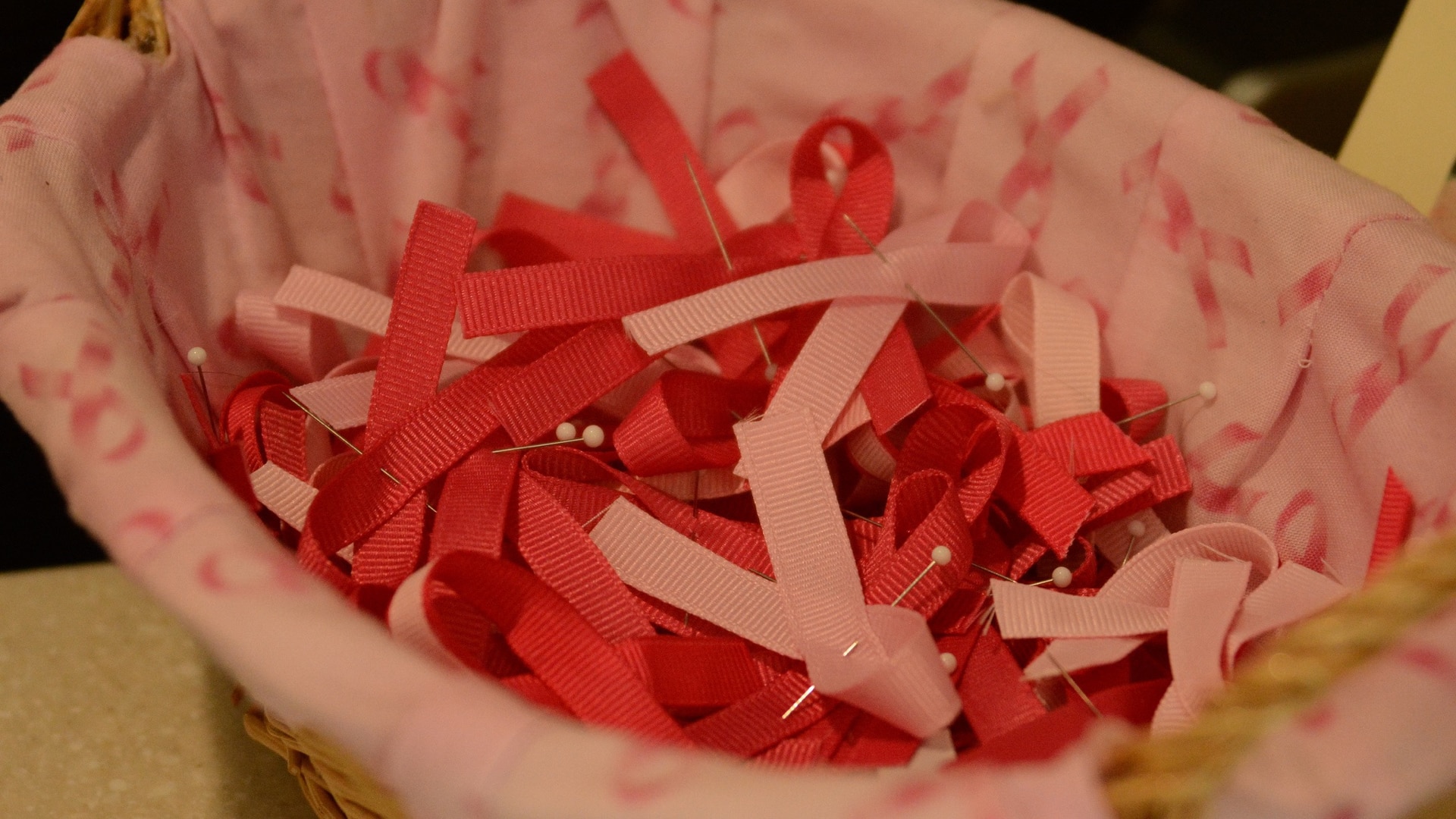
Should Women at High Risk for Breast Cancer Avoid Soy?
Which dietary changes could reduce free radical damage and also improve DNA repair in women...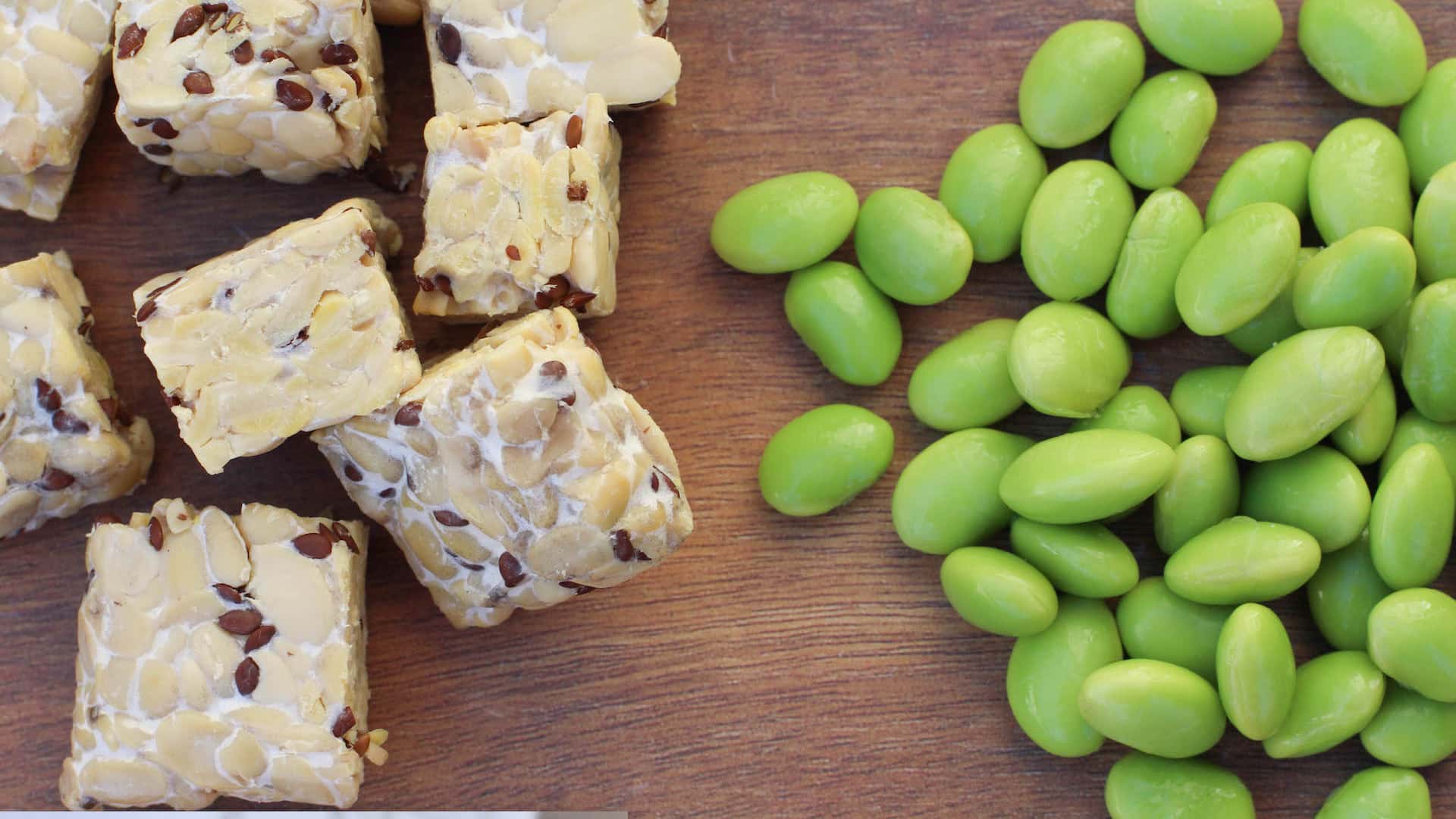
Is Soy Healthy for Breast Cancer Survivors?
What role do soy phytoestrogens play in the prevention and treatment of breast cancer?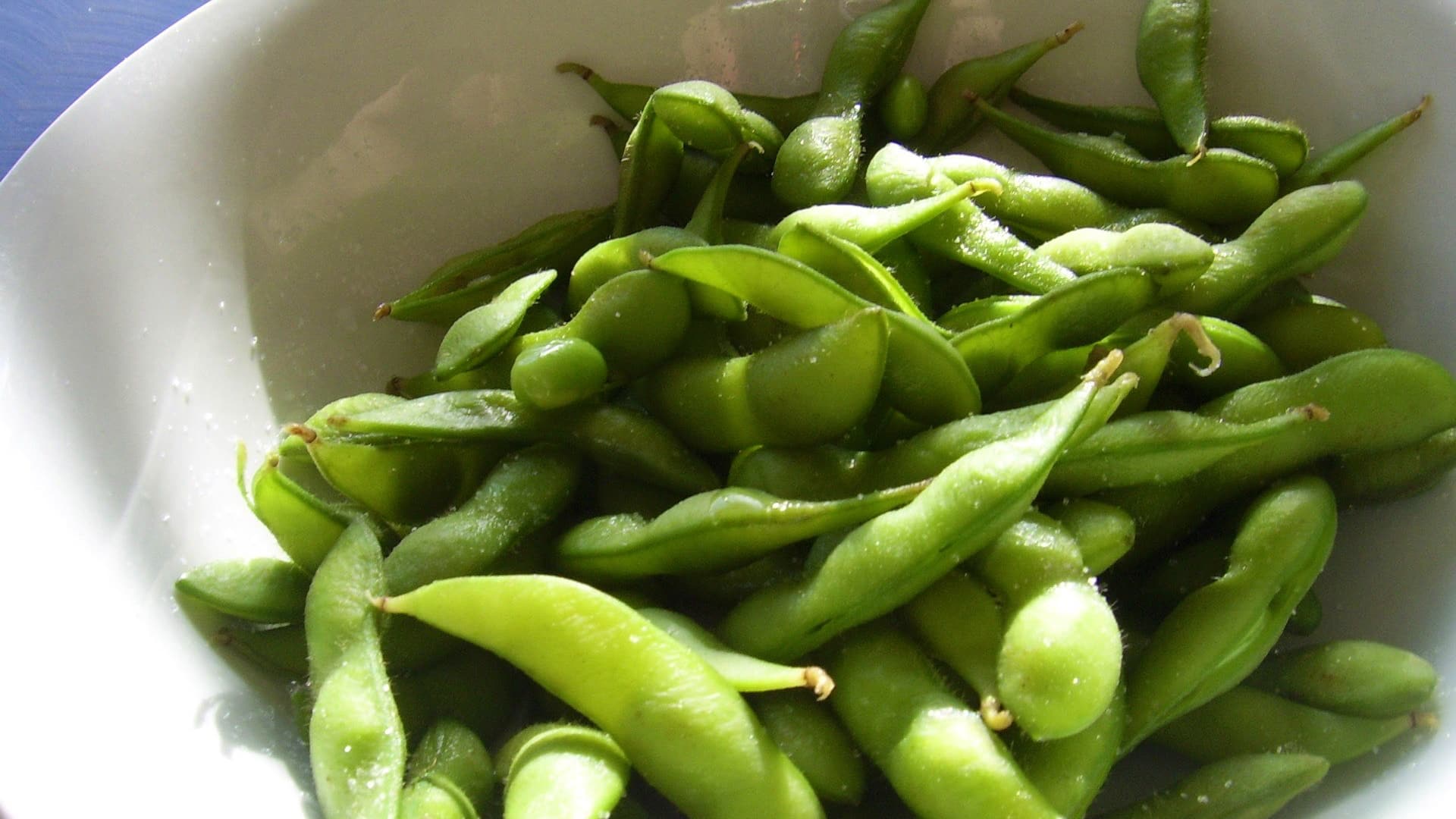
Who Shouldn’t Eat Soy?
How can soy foods have it both ways with pro-estrogenic effects in some organs that...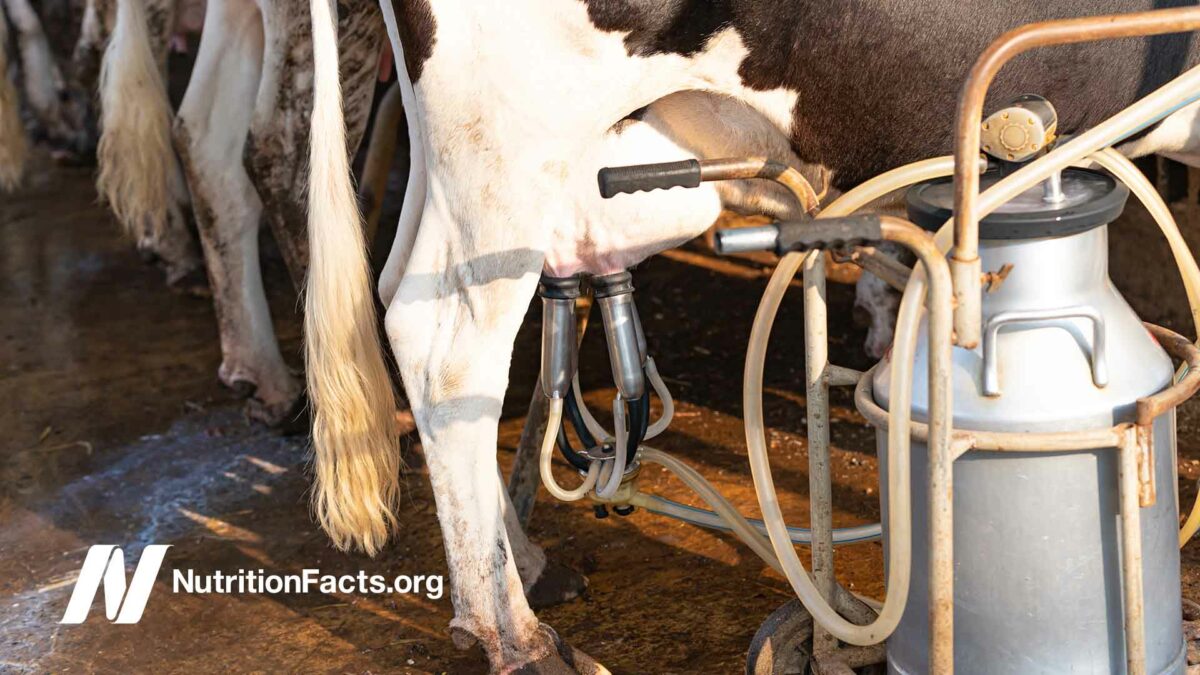
Industry Response to Bovine Leukemia Virus in Breast Cancer
What was the response to the revelation that as many as 37 percent of breast...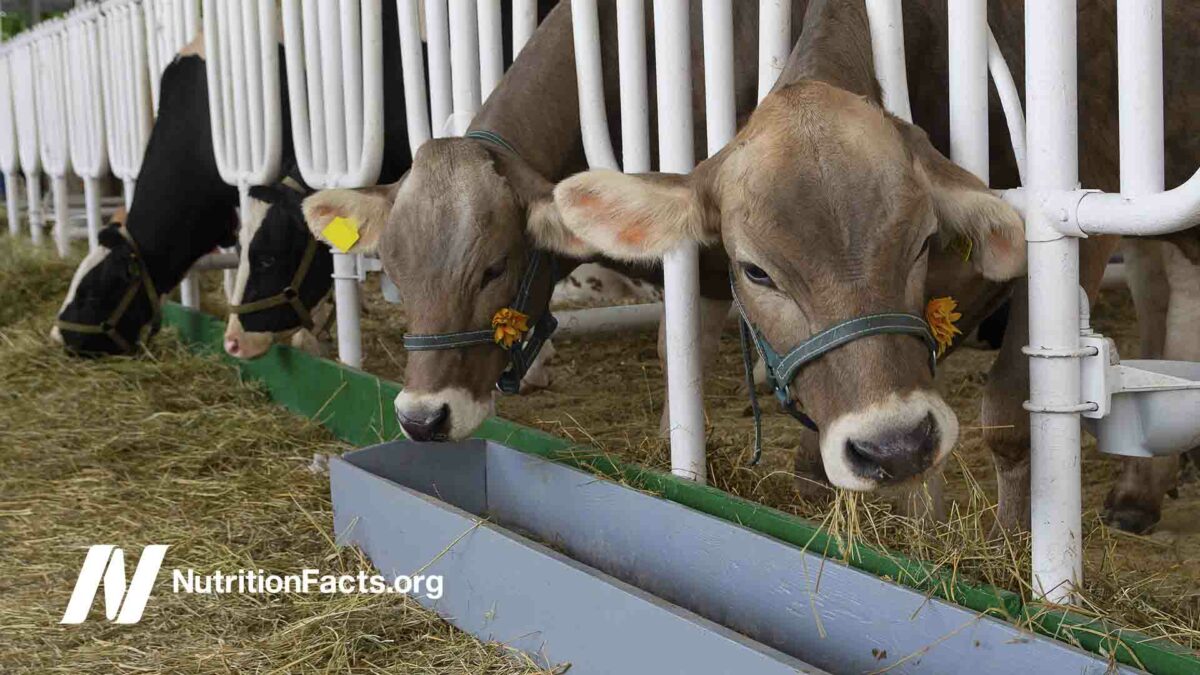
The Role of Bovine Leukemia Virus in Breast Cancer
As many as 37 percent of human breast cancer cases may be attributable to exposure...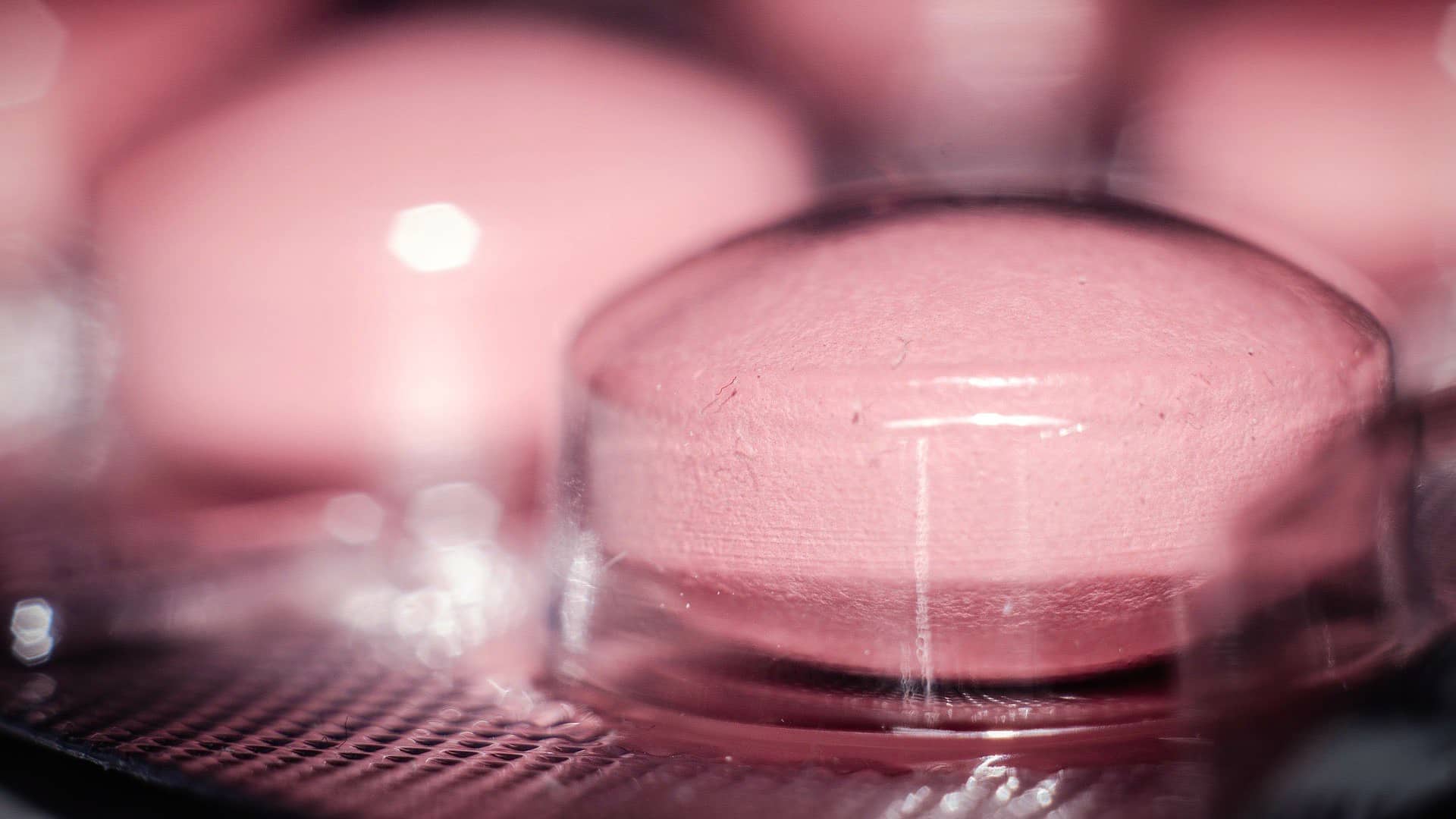
How Did Doctors Not Know About the Risks of Hormone Therapy?
Women were placed in harm’s way by their physicians, who acted as unsuspecting patsies for...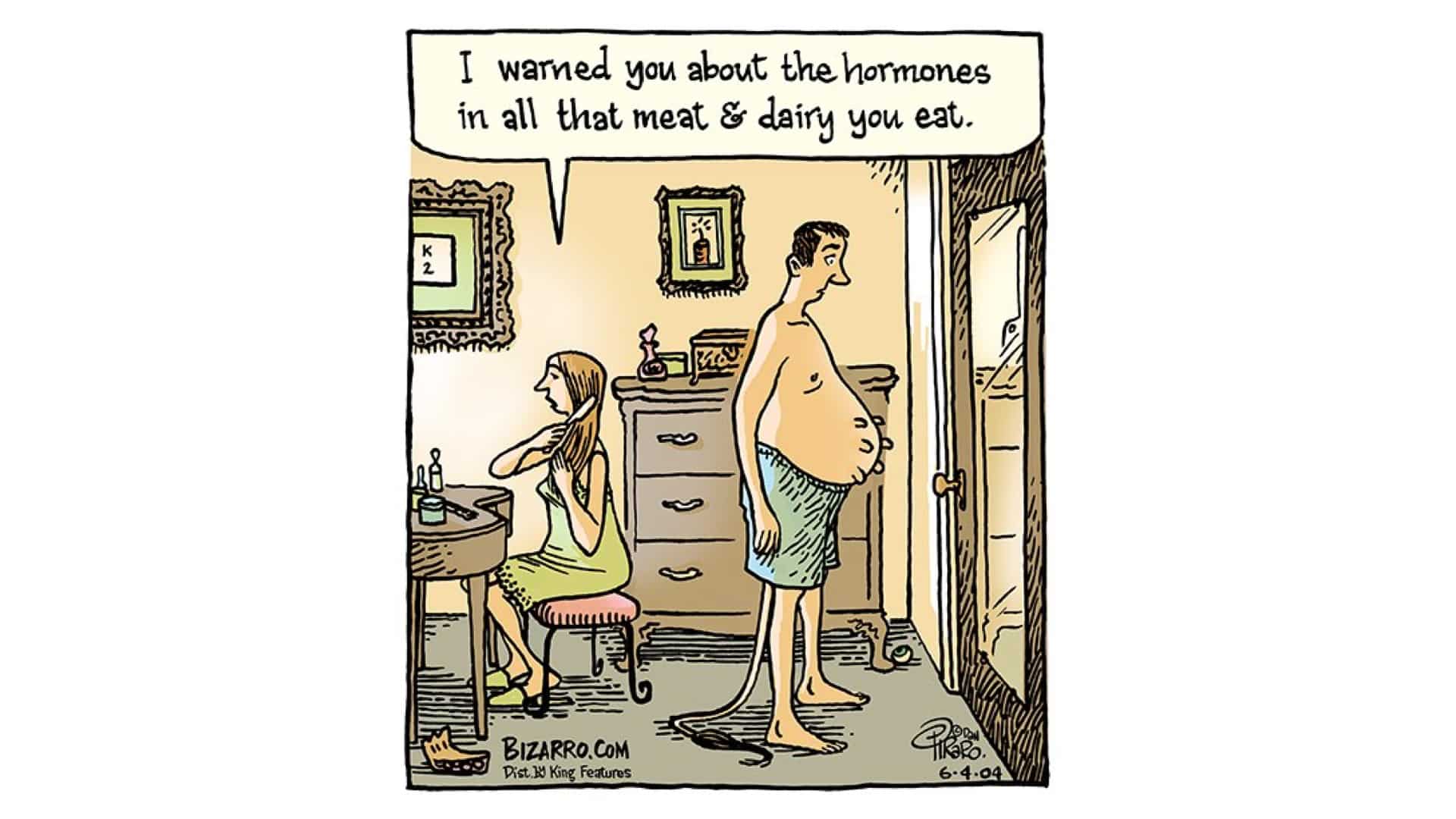
Zeranol Use in Meat and Breast Cancer
Anabolic growth-promoting drugs in meat production are by far the most potent hormones found in...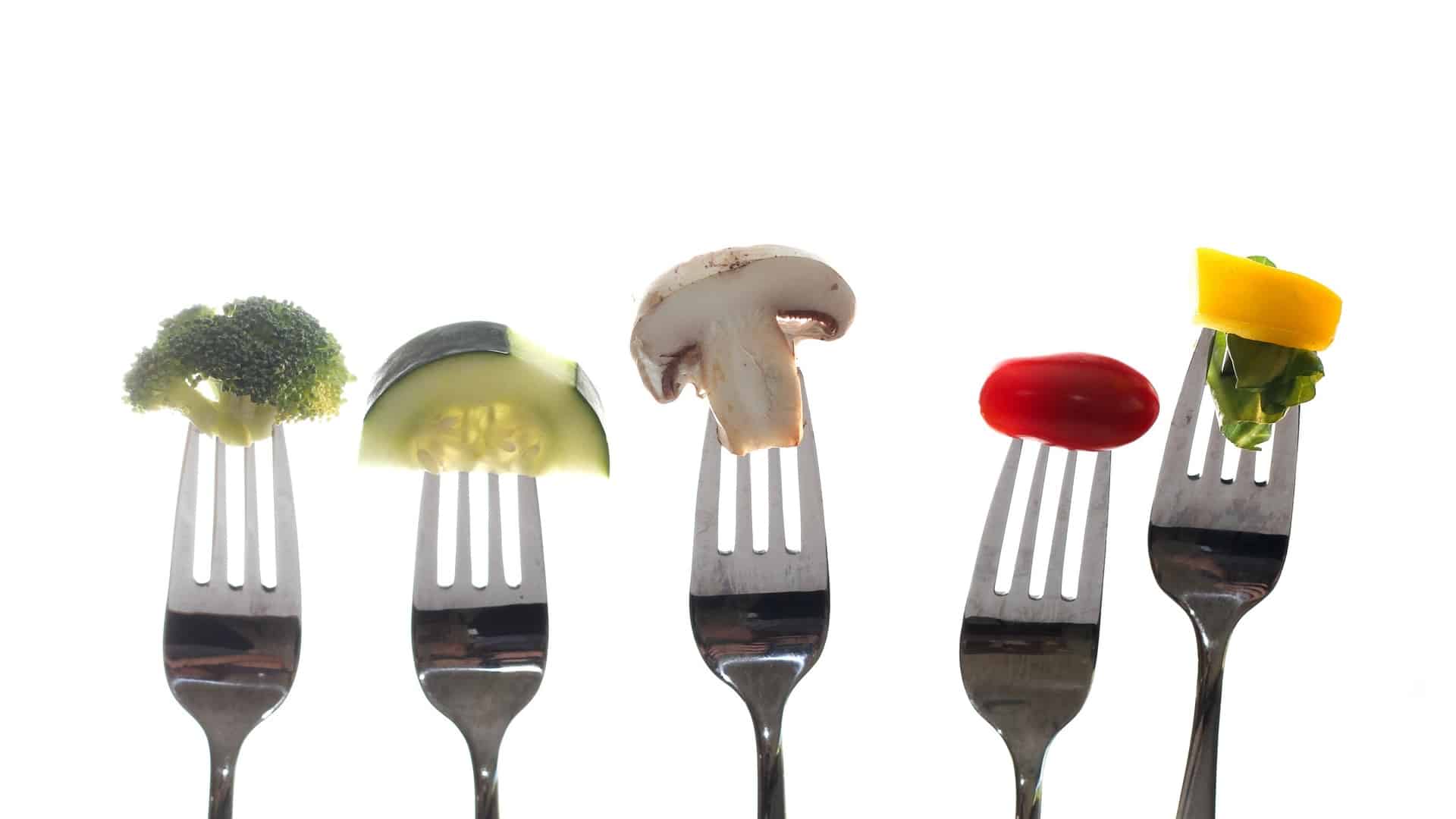
Which Dietary Factors Affect Breast Cancer Most?
American Institute for Cancer Research recommendation compliance associated not only with cancer prevention and survival...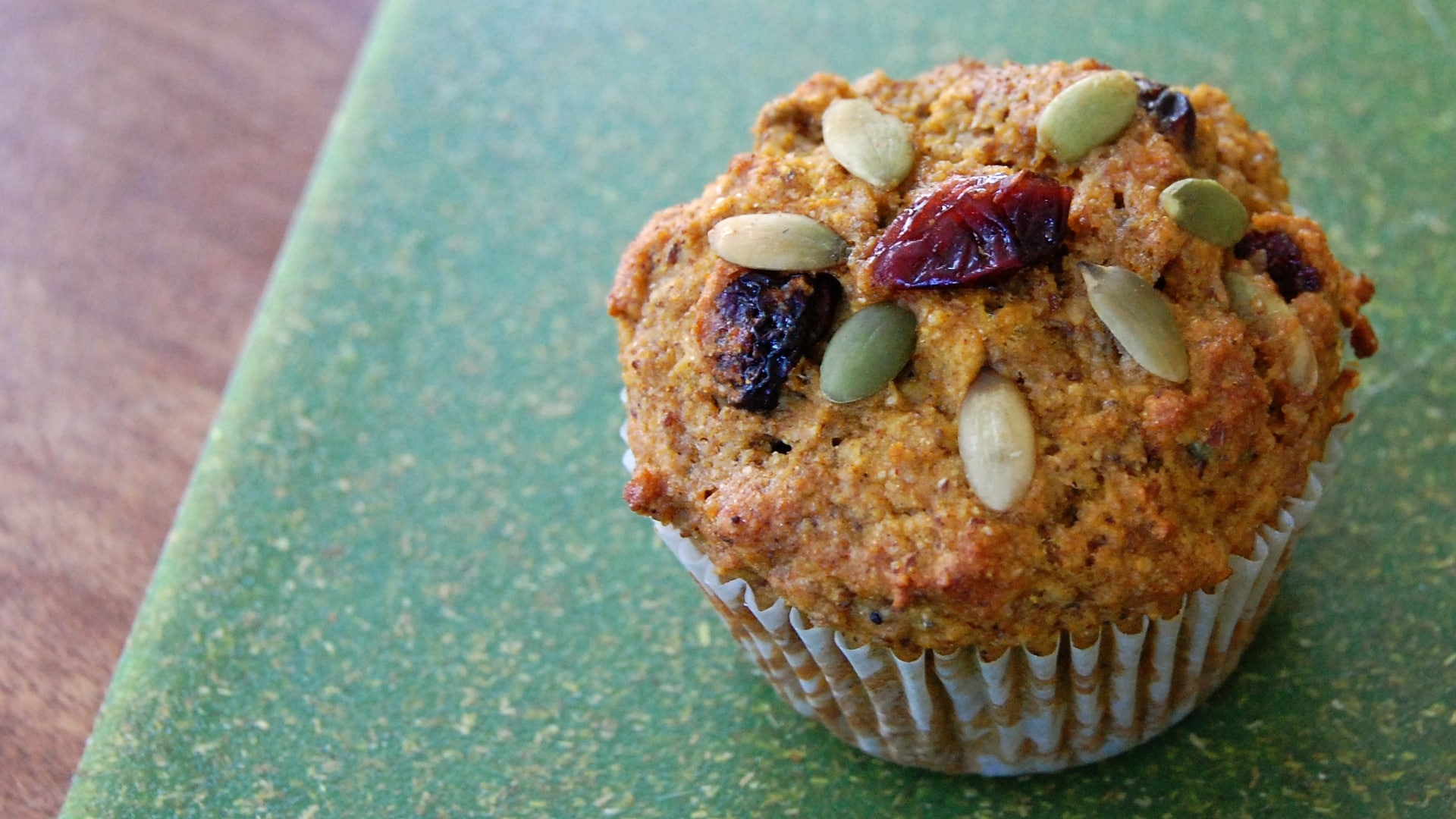
Can Flaxseeds Help Prevent Breast Cancer?
Flax seed consumption may play a role in preventing and treating breast cancer by blocking...
Breast Cancer and Constipation
The reason why women who have more frequent bowel movements appear to be at lower...
Cholesterol Feeds Breast Cancer Cells
Cholesterol appears to stimulate the growth of human breast cancer cells—which may explain why phytosterol-rich...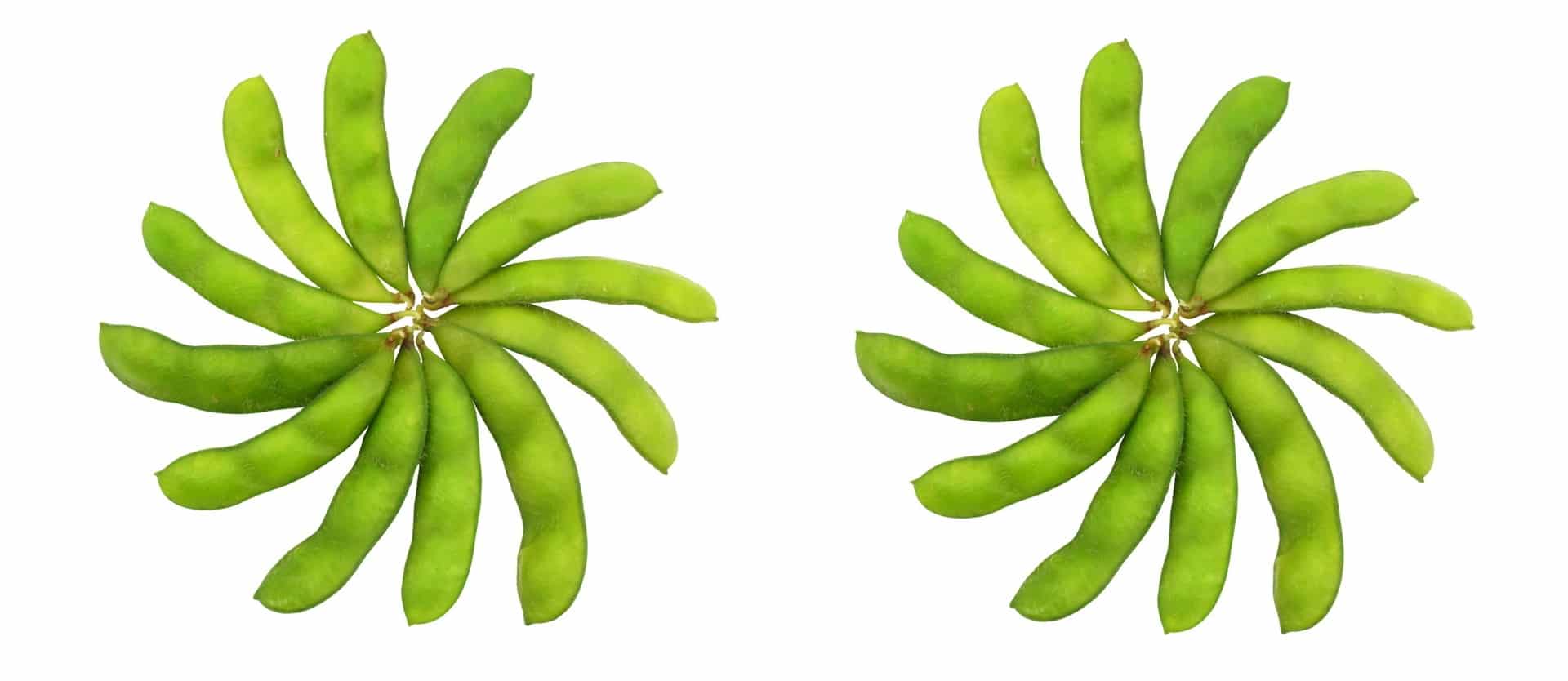
BRCA Breast Cancer Genes and Soy
One reason why soy consumption is associated with improved survival and lower recurrence rates in...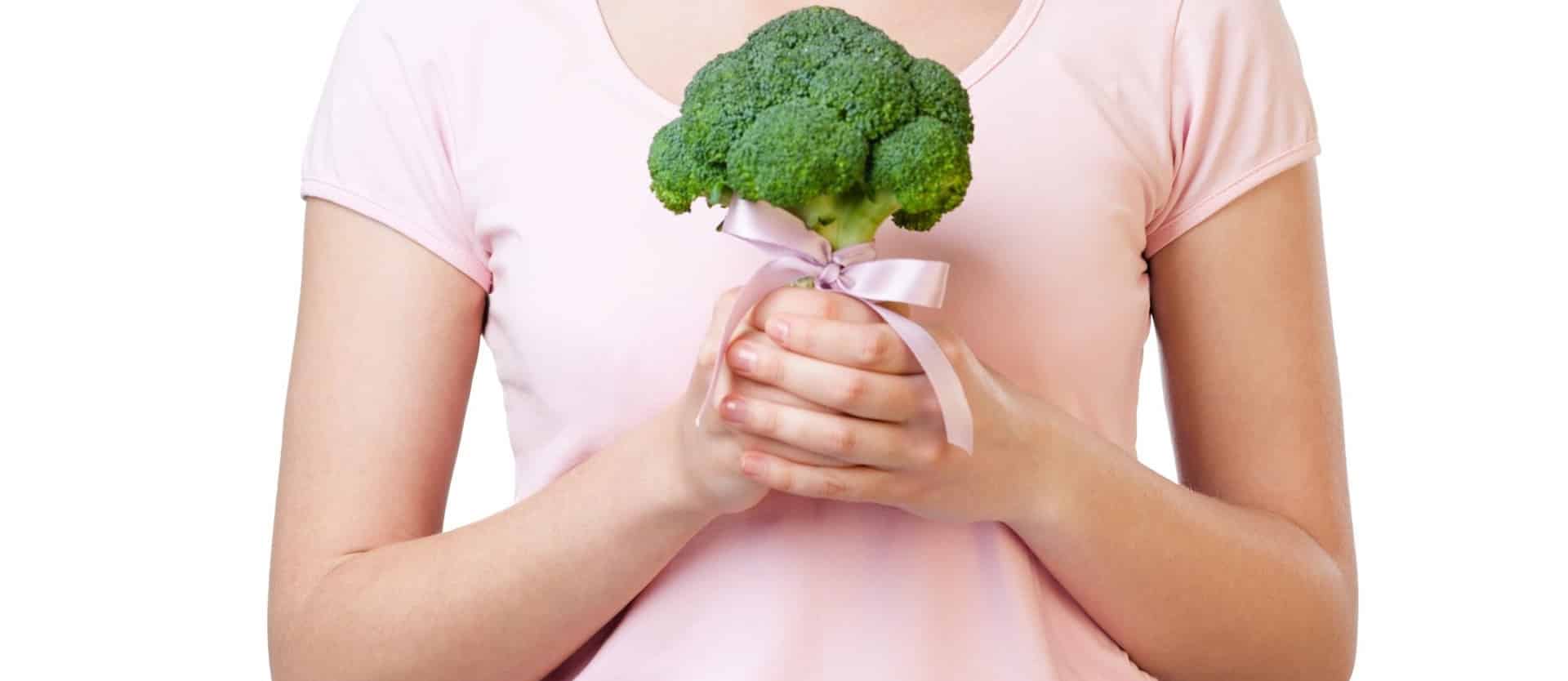
Breast Cancer Survival Vegetable
Simple changes in diet and lifestyle may quadruple a woman’s survival rate from breast cancer.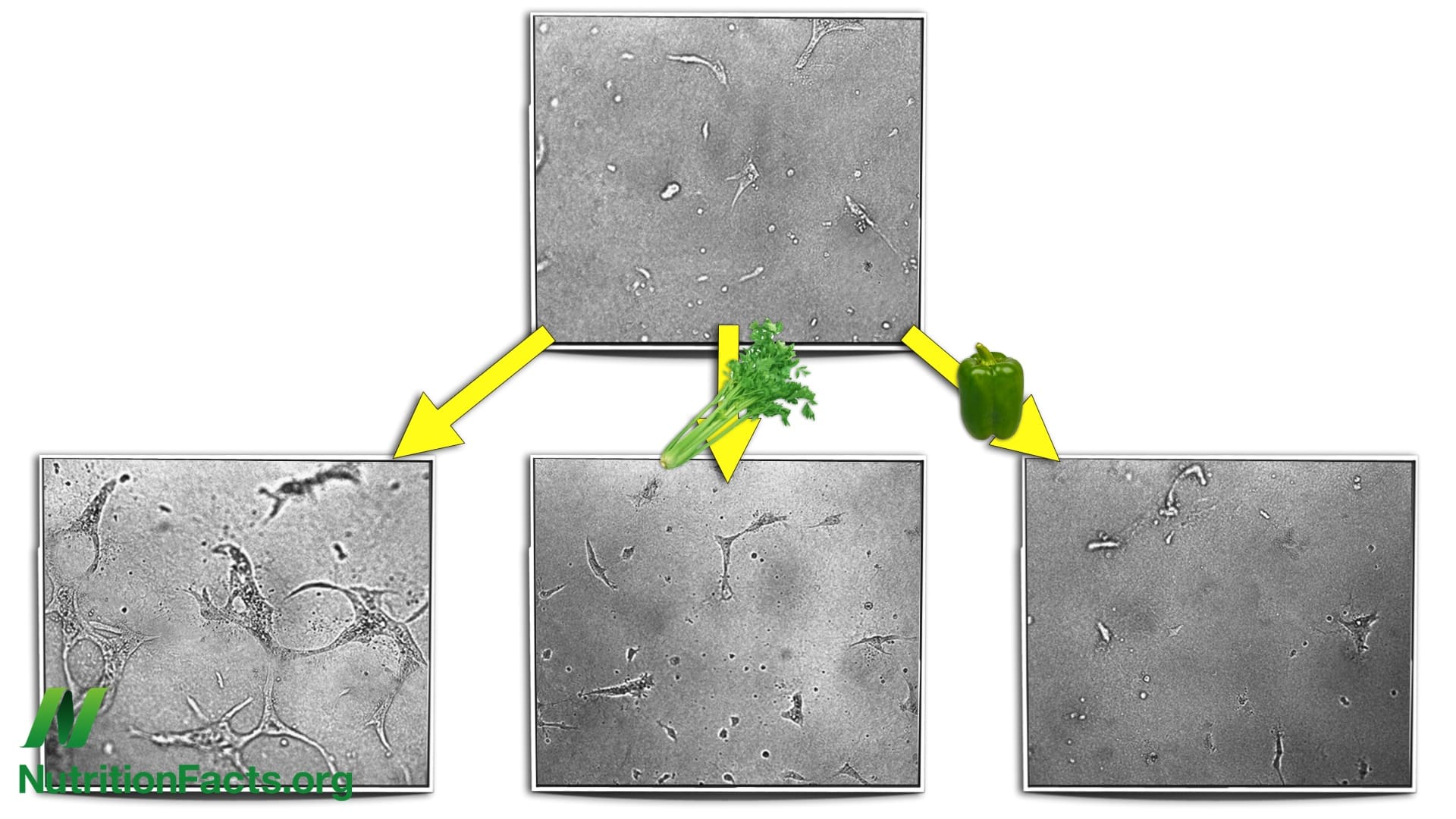
Anti-Angiogenesis: Cutting Off Tumor Supply Lines
Cancer cells are commonly present in the body, but cannot grow into tumors without hooking...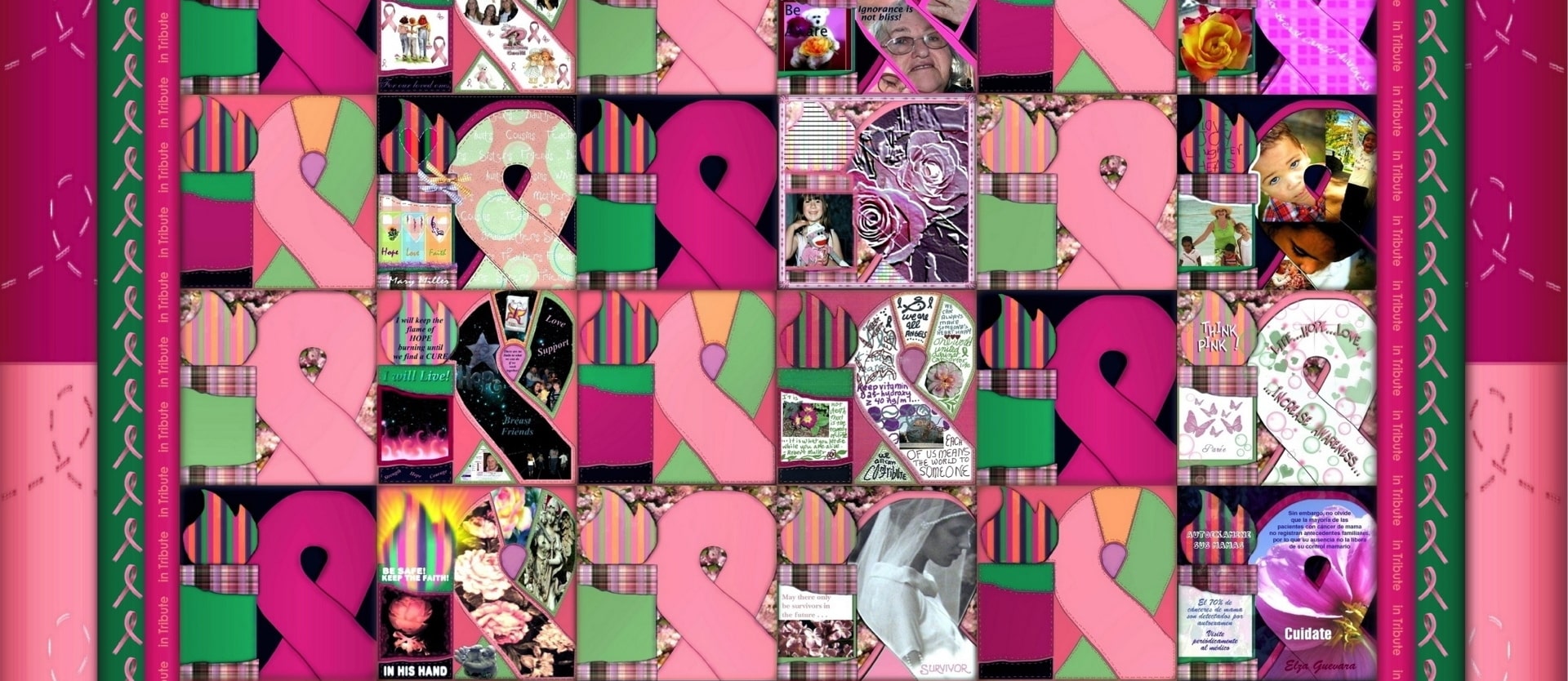
Flaxseeds & Breast Cancer Prevention
Young women at high risk for breast cancer given just a teaspoon of ground flax...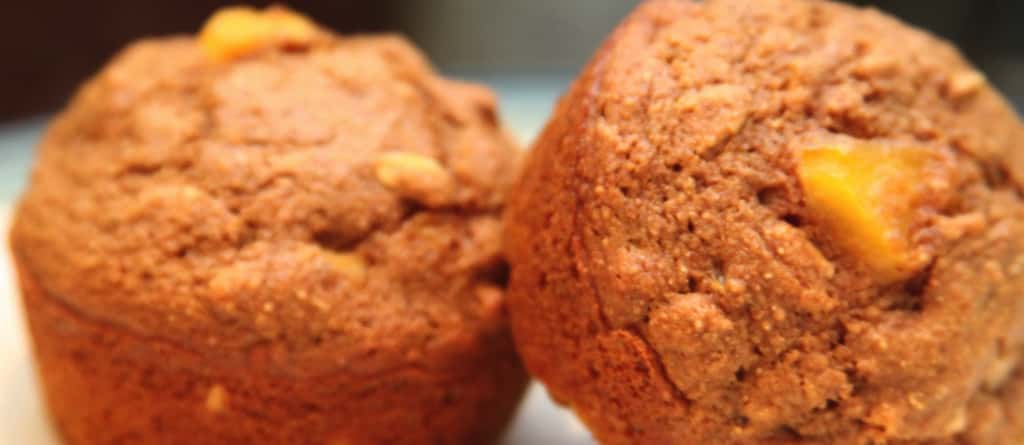
Flaxseeds & Breast Cancer Survival: Clinical Evidence
A randomized, double-blind, placebo-controlled, clinical trial of flax seeds in breast cancer patients finds flax...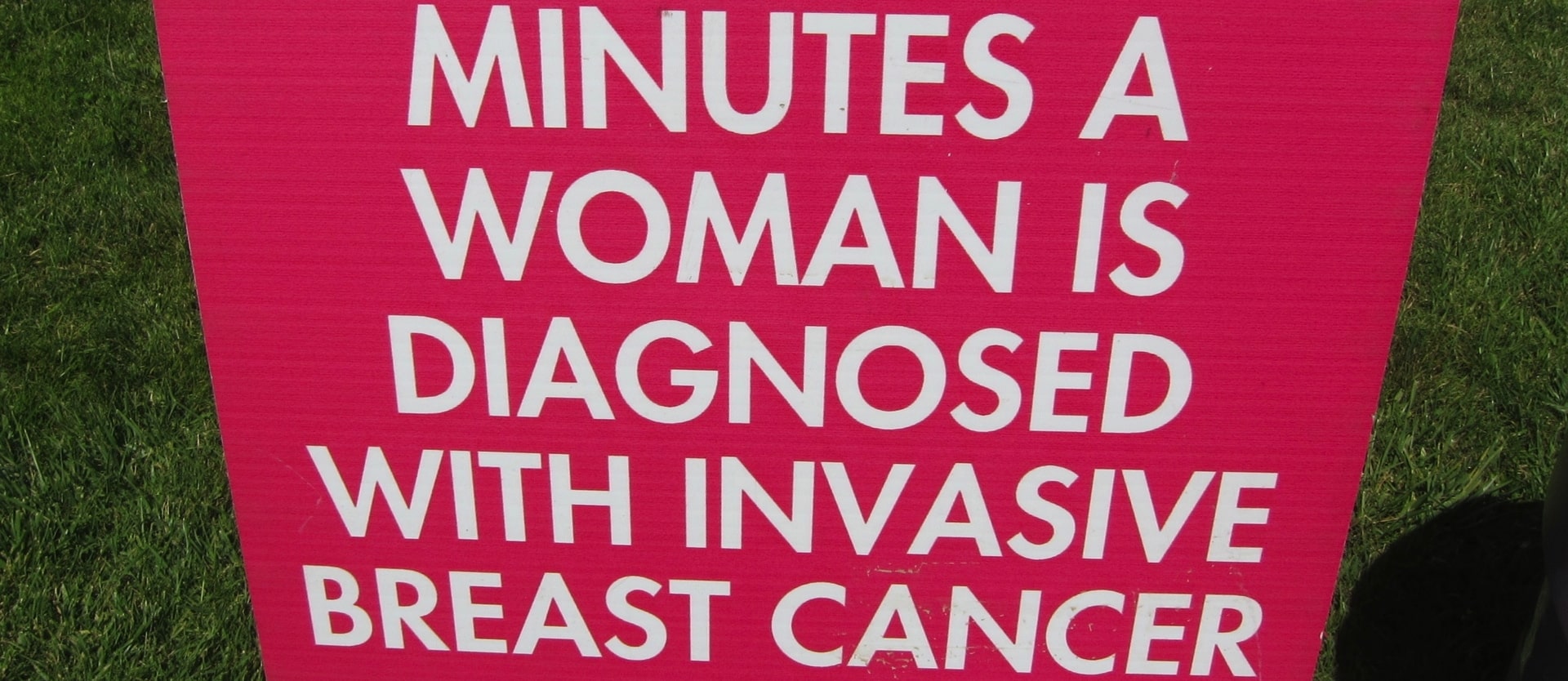
Flaxseeds & Breast Cancer Survival: Epidemiological Evidence
Lignan intake is associated with improved breast cancer survival in three recent population studies following...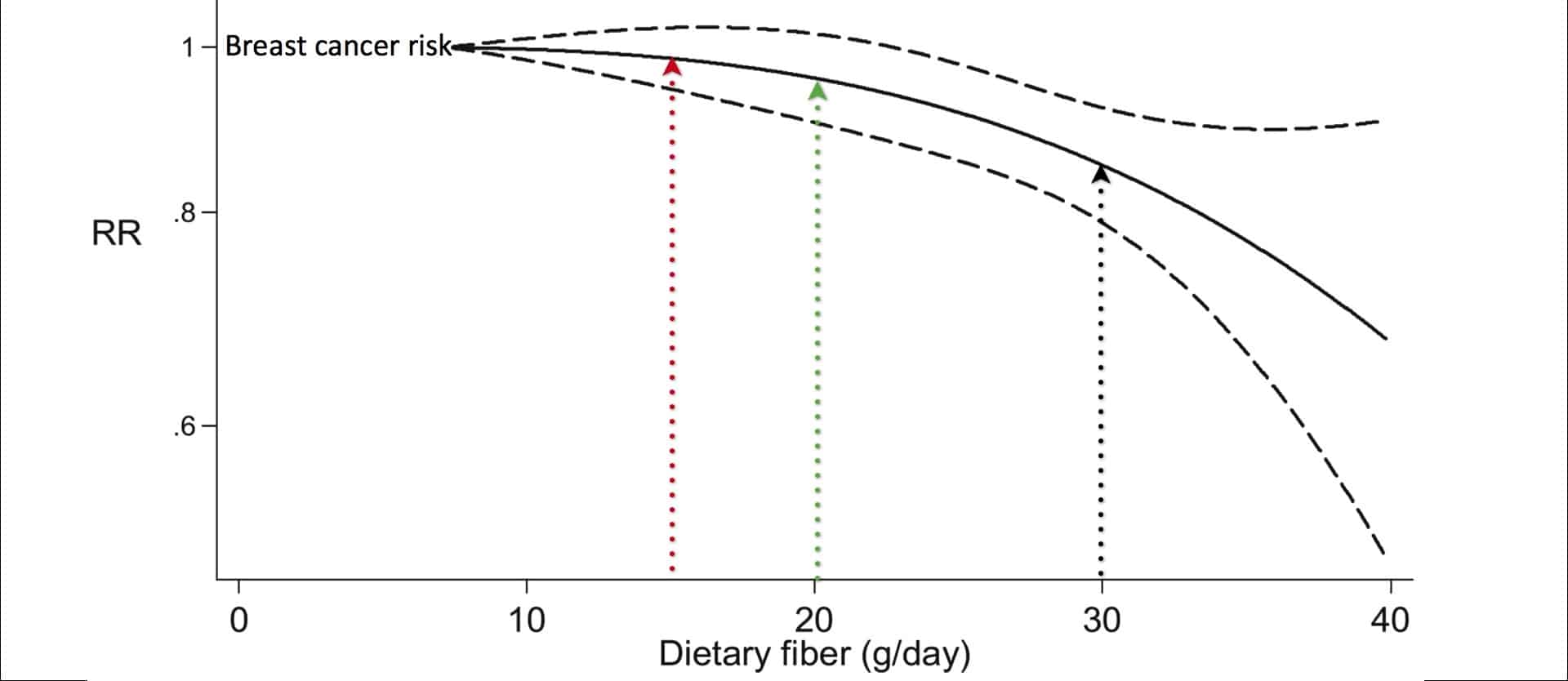
Fiber vs. Breast Cancer
Inadequate fiber intake appears to be a risk factor for breast cancer, which can explain...All Videos for Breast Cancer
-

How Not to Die Documentary
In celebration of the 10th anniversary of the publication of How Not to Die, a documentary about my life and work.
-

Do the Health Impacts of Ultra-Processed Foods Apply to Plant-Based Meat Alternatives?
If the only ultra-processed food that appears to be killing people is meat, then plant-based meats may be the solution to the ultra-processed foods problem.
-

The Side Effects of the Hormones in Milk
Within an hour of drinking dairy milk, blood levels of the estrogen estrone in men go up and testosterone goes down.
-

Reversing Early-Stage Prostate Cancer Progression with a Plant-Based Diet and Lifestyle Program
A plant-based lifestyle is put to the test against early and late-stage cancer
-

Golden vs Brown Flaxseed: Which Has More Benefits?
Which kind of flaxseed has more cancer-fighting lignans?
-

How to Slow Cancer Growth
At this very moment, many of us have tumors growing inside our bodies, so we cannot wait to start eating and living more healthfully.
-

Comparing the Benefits and Side Effects of Ozempic (Semaglutide)
Obesity can be so devastating to our health that the downsides of any effective drug would have to be significant to outweigh its weight-loss benefits.
-

The Trade-Off Between Fertility and Longevity, and Causes of Precocious Puberty
A century ago, the age of first menstruation averaged as late as nearly 17. Why is sexual maturity coming so much earlier now?
-

Is FDA-Approved Bioidentical Hormone Replacement Therapy Safe?
As of 2019, there are urine-free FDA-approved bioidentical hormones that skirt the standardization concerns of compounded preparations. Are they any safer?
-

Is Longevity Genetic?
Based on a study of thousands of twin pairs, only about 25 percent of the difference in lifespan among people is genetically determined.
-

How to Delay the Age of Menopause with Diet and Lifestyle Factors
Approximately half of the variability of age of menopause among women is explained by genetics. What behaviors or circumstances can help explain the rest?
-

Do Vitamin D Supplements Help Prevent Diabetes, Cancer Mortality, and Overall Mortality?
Randomized interventional trials are necessary to establish cause-and-effect.
-

How Not To Age – Live Presentation
In this live lecture, Dr. Greger offers a sneak peek into his latest book, How Not to Age, a New York Times Best Seller.
-

Soy Foods for Menopause Hot Flash Symptoms
Soy can be considered a first-line treatment for menopausal hot flash and night sweat symptoms.
-

Dietary Sources of the “Longevity Vitamin” Ergothioneine
It may be even more important to include mushrooms (or tempeh) in our diet as we age.
-

Hormone Treatment (Estrogen Pills and Creams) for Vaginal Menopause Symptoms
Does vaginal estrogen carry the same risk as oral estrogen?
-

Yoga Put to the Test for MS, Back Pain, Neck Pain, Insomnia, and Breast Cancer
Is yoga better than other types of exercise, better than nothing but similar to other physical activity, or not beneficial even when it’s compared to doing nothing at all?
-

Is Soy Milk the Most Nutritious Non-Dairy Milk?
Soy milk is compared to dairy milk and other plant-based milks.
-

Targeting Angiogenesis to Lose Weight
Expanding body fat releases blood supply-generating factors that may end up hooking up tumors, too.
-

The Impacts of Plant-Based Diets on Breast Cancer and Prostate Cancer
Why do people who eat more plants get less breast and prostate cancer?
-

The Best Diet for Cancer Patients
What diet should oncologists recommend?
-

Diet and Lifestyle for Cancer Prevention and Survival
What kind of diet should cancer patients eat?
-

Vitamin D May Explain Higher Bone Fracture Risk in Vegans
A combination of low calcium intake and low vitamin D exposure may explain higher bone fracture rates in British vegans.
-

Fasting-Mimicking Diet Before and After Chemotherapy
How might we replicate the protective effects of fasting with food?
-

Fasting Before and After Chemotherapy Put to the Test
Do the benefits of short-term fasting during cancer therapy found in the lab translate into the clinical setting?
-

Fasting Before and After Chemotherapy and Radiation
Might short-term fasting during cancer treatment minimize side effects while boosting efficacy?
-

The Role of Kimchi and H. Pylori in Stomach Cancer
What explains the Achilles’ heel in certain Asian diets?
-

How Much Does Chemotherapy Improve Survival?
If you put together all of the new chemo drugs that had been approved over a dozen years, the average overall survival benefit is only 2.1 months.
-

How Much Cancer Does Processed Meat Cause?
I quantify the risks of colon and rectal cancers from eating bacon, ham, hot dogs, sausage, and lunch meat.
-

Breast Cancer and the Bovine Leukemia Virus in Meat and Dairy
Exposure to the bovine leukemia virus from meat and dairy (or a blood transfusion from those who eat meat or dairy) is a risk factor for cancer.
-

Bovine Leukemia Virus as a Cause of Breast Cancer
As many as 37 percent of breast cancer cases may be attributable to exposure to bovine leukemia virus.
-

Fighting the Ten Hallmarks of Cancer with Food
The foundation of cancer prevention is plants, not pills.
-

Pesticides and Cancer Risk
Does choosing organic over conventional foods protect against cancer? The effects of pesticides on cancer risk.
-

Plant-Based Eating Score Put to the Test
How can you get a perfect diet score?
-

Are Onions Beneficial for Testosterone, Osteoporosis, Allergies, and Cancer?
What did randomized controlled human trials find about the ways we may—or may not—benefit from eating onions?
-

The Food That Can Downregulate a Metastatic Cancer Gene
Women with breast cancer should include the “liberal culinary use of cruciferous vegetables.”
-

How to Help Control Cancer Metastasis with Diet
Randomized controlled trials show lowering saturated fat intake can lead to improved breast cancer survival.
-

What Causes Cancer to Metastasize?
Palmitic acid, a saturated fat concentrated in meat and dairy, can boost the metastatic potential of cancer cells through the fat receptor CD36.
-

Studies on Millet Nutrition: Is It a Healthy Grain?
Millet isn’t the name of a specific grain, but a generic term that applies to a number of totally different plants. Which is the most healthful?
-

Is Heme Iron the Reason Meat Is Carcinogenic?
Rectal biopsies taken before and after eating meat determine the potentially DNA-damaging dose of heme.
